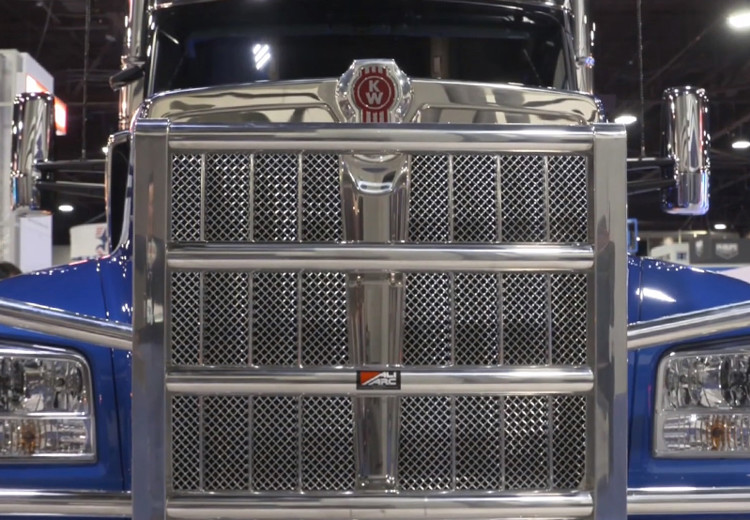Videos
Marine fuels sludge management
28 June 2024
Please note this article was published in August 2020 and the facts and opinions expressed may no longer be valid.
04 August 2020

The latest technology developments were on full display in Atlanta Georgia, at the 2020 Technology & Maintenance Council’s Transportation & Technology Exhibition, organised by the American Trucking Association. Infineum was on hand to cover the latest advancements designed to meet the commercial transportation needs of tomorrow.
Seventy percent of all freight is transported annually in the U.S. by the trucking industry and the need to do it efficiently and sustainably continues to drive commercial powertrain innovation. The latest technology developments were on full display in Atlanta Georgia, at the 2020 Technology & Maintenance Council’s Transportation & Technology Exhibition, organised by the American Trucking Association. Infineum Trends was on hand to cover the latest advancements to meet the commercial transportation needs of tomorrow.
Both Mack and Volvo are increasing deployment of their newest engines using turbo compounding. This form of waste heat recovery improves efficiency by further extracting energy from waste exhaust gases after they leave the turbocharger and putting this energy back into the crankshaft through a fluid coupling. Efficiency gains in excess of 5% would provide a huge boost for fleet operators.
Turbo compounding compliments Mack and Volvo’s advanced Wave Piston design, as seen in this Mack MP8 engine, which helps achieve higher levels of combustion efficiency by directing combustion back towards the middle of the chamber to maximise use of available oxygen.
As stricter greenhouse gas phase 2 regulations phase in, advanced engine technologies will be required to deliver further improvements in efficiency. At TMC, Eaton showcased several innovative valve train and power cylinder technologies to help OEM’s meet the upcoming legislation. Expect newer commercial diesel engines to have the ability to vary valve timing and duration, deploy smarter use of engine braking, and utilise cylinder deactivation systems.
Transmission gearboxes in HDD continue their evolution as well. Line haul Fleets seem to recognize that the benefits of automated transmissions are worth their incremental increase in cost over manuals. Here we see the Eaton-Cummins Endurant 12 speed automated manual transmission. It still uses the internal gears of a manual transmission with a computer controlled pneumatic shift actuation system. Internal spray nozzles ensure the lubricant goes exactly where and when it’s needed and reduces the overall fluid required by half relative to other AMTs.
With commercial vehicle duty cycles and driving patterns differing greatly compared to passenger cars, there are significant differences in how electrification of the commercial powertrain is progressing.
In medium duty, local distribution and last mile delivery, it may be possible to see fully electrified vehicles make inroads into the market.
Meritor and Dana Hylion showcased some of their latest technology in this area. Meritor’s blue horizon showcase their development of a complete electric drivetrain. Combining the key elements of a battery, motor powered axle with inverters for regenerative braking, it could make for a functional electric truck powertrain. Dana’s Spicer line shows similar technology with a large motor being able to drive the vehicle with a payload.
However, with battery capacity and cost still being disadvantaged compared to diesel fuel’s energy density and cost, we anticipate diesel will remain the primary fuel choice for line-haul commercial transportation for the foreseeable future. That said, smart electrification can work in concert with efficient diesel technologies. For instance, Hylion’s hybrid electric uses an e-axel to capture energy normally lost during braking and descending hilly terrain, improving overall vehicle fuel economy.
Another way electrification may impact diesel engines is by electrification of the trailer. Witness these solar energy units and associated technology potentially eliminating a diesel-powered refrigeration unit for a trailer. We’ve increasingly heard that a shift to lower viscosity fluids for fleets has been partially slowed by low viscosity fluids not being recommended for these diesel powered auxiliaries. Could electrification of the trailer solve this issue?
We’re left with excitement on all the encouraging developments occurring in the commercial vehicle segment that continue to improve what vehicles are capable of but also increasingly meet the desire for improved sustainability and efficiency!
Sign up to receive monthly updates via email